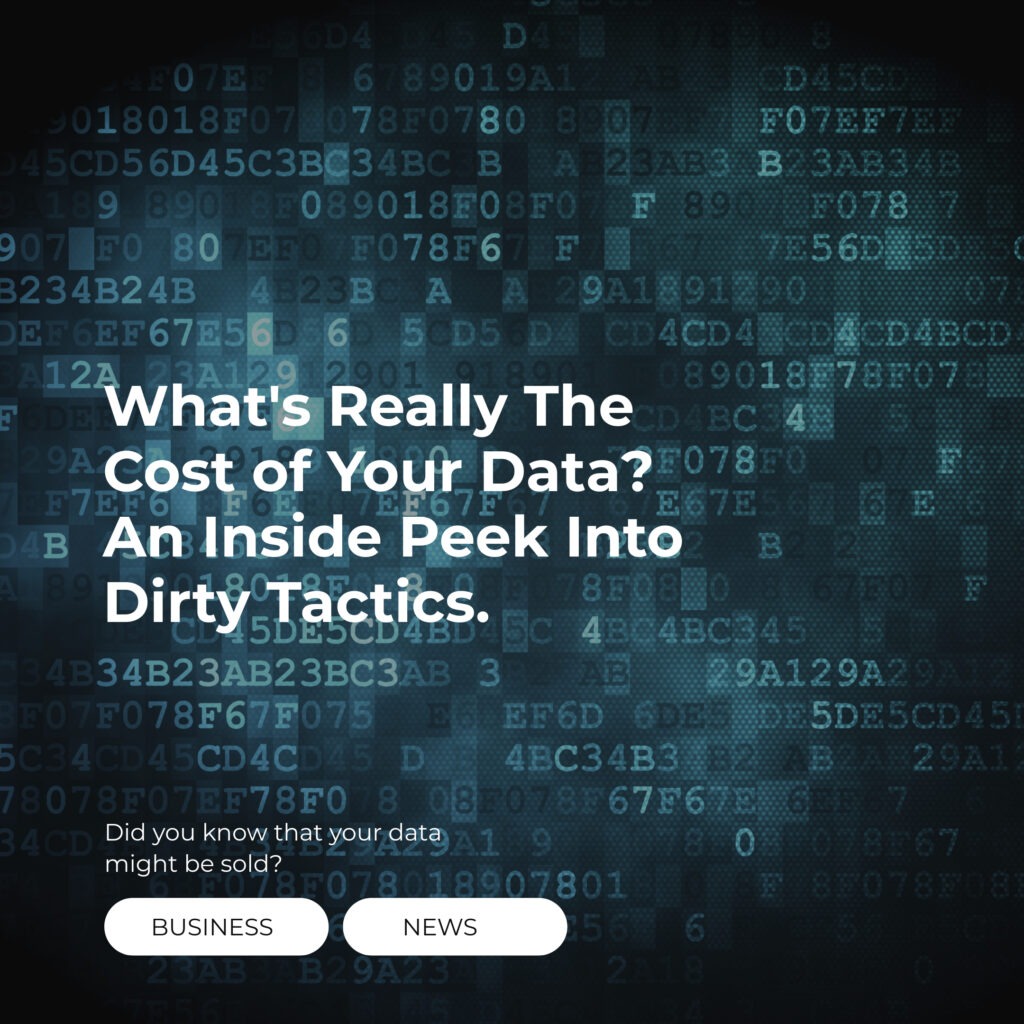What’s Really The Cost of Data?

What’s Really The Cost of Data?
In the ever-evolving digital landscape, data has become the lifeblood of businesses. From small startups to multinational corporations, data plays a pivotal role in decision-making, strategy formulation, and overall success. However, many are left wondering, “What’s really the cost of data?” In this comprehensive exploration, we delve into the intricacies of data costs, shedding light on the tangible and intangible aspects that businesses often overlook.
When you start working with clients, you start collecting data. As your business grows this data becomes invaluable. But it only becomes invaluable if you are not only collecting the data but collecting it correctly.
What does data refer to? Data can be any information that you can collect and track within your business – client details, costing details, supplier costing and details, project details, budgets and so much more. The list really is endless with the amount of data that any company can collect.
As a business, you really can’t afford to not be tracking all of this information. We think it’s crucial to track this and understand where your data goes. BUT. What you do with that data, is a whole new story.
The best way to start managing your data is by investing in quality software, designed for the industry, which will help you to streamline your business process while also tracking your data. There are various companies, like Ivy, Design Manager and Studio Designer who have software programs that allow you to do just that. These software programs are designed to make your life as a designer easier, but they also allow you to track your data to see trends and track profit margins and growth. Ultimately these companies are selling you a way to manage your data which becomes invaluable for any growing business. To themselves…
While the collection of data is beneficial for your business, this data needs to be protected and kept secure, preventing it from being used for the wrong reasons. This recent quote from Studio Designer CEO, Keith Grennet raised some alarm bells. “We’re putting together industry reports that show, for example, the average billing rates for designers in your region or markup,” he says. “What’s the average salary of a junior designer? What kind of benefits should you offer? When clients think you’re more expensive than your competition, there will be actual data to verify whether or not that’s true. This data has value for everyone.” 1
This information could be especially useful for the industry but at what cost? If they are using the private data of their designers to gather these reports they speak of, it does beg the question, how secure is your personal and private information, especially when a CEO is so open to admitting that this information they are collecting is valuable to everyone. And more importantly what is your data being used for?
Very few people take the time to read the privacy policies of the software they are installing; it is often just assumed it is safe. This is not always the case, and it is essential that you read the fine print when investing in software that will be collecting data, especially if your client’s and suppliers’ information will also be collected.
Before buying any software ask to see their privacy policy and read it thoroughly. Have a clear understanding of exactly how they collect data, what they will do with it and what rights you have as the user. Even with this, companies can still technically provide “overall” information and data to these third-party companies and still sell this data that they collect without any private information being disclosed. But, do you think it’s right that a company collect this data and make money off of it? Certainly, the majority of Facebook users disagree with the most recent backlash Facebook has gotten about their data use practices.
The three things you want to look out for are how the personal information will be used, can you opt out of secondary uses, like marketing and how long is the information kept. All of this information must be outlined inside a privacy policy, but going back to before any company can still use this data to sell to third party companies, vendors, suppliers, etc…
Privacy of information should be something important to every business owner, especially when it comes to the privacy of your clients and suppliers. They did not agree for their data to be used and if it is shared without their knowledge or consent it can be damaging to the relationship, ultimately effecting your business negatively.
Indema founder, Timothy Murenzi, had this to say about the collection and use of data ” With indema, we have a strong focus on making sure our user data is not to be touched with. We will never sell, use, or abuse the data that we have from our users for anything other than our own internal use to better the platform for the users who benefit from it. It’s also important to note that indema does not have any systems in place where any of the data (aside from user email addresses, and website address as well as firm name) is easily accessible to use. ”
Indema’s privacy policy backs this statement up, further showing their commitment to the protection of private and personal information.
There are some benefits to collecting data – it allows you to understand your market a lot deeper and improve marketing strategies and you are able to build a database that allows you to personalize your business. But this collection of data should be done by your business only and not the companies that supply your software or other online tools.
Before you commit to any software or online tool, make sure you are clear how that company plans to use the data you will collect.
References:
1. https://businessofhome.com/articles/how-new-initiatives-led-studio-designer-to-10-000-users-and-counting
